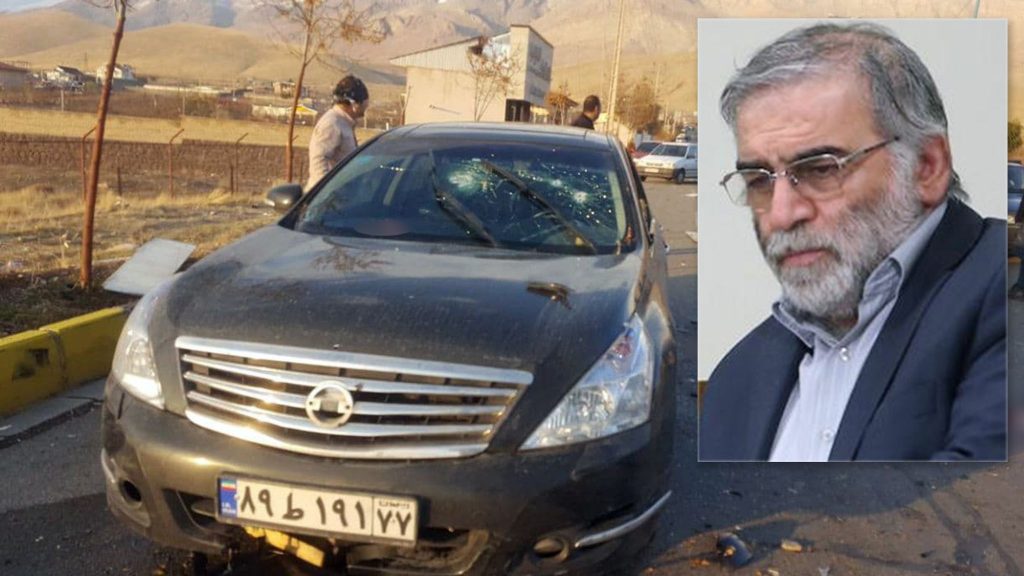NEW DELHI, Nov 28: Fresh round of confrontation between Israel and Iran seems to be on the cards following the killing of a top Iranian scientist which Iran believed was the handiwork of Israel. The Islamic Republic has vowed to avenge the death of Mohsen Fakhrizadeh, Iran’s most senior nuclear scientist, who was killed in an ambush near Tehran on Friday, triggering strong reactions from country’s top leadership.
Iran’s President Hassan Rouhani on Saturday accused Israel of assassinating the scientist, who was long suspected by the west of masterminding the secret nuclear programme for the country. “Once again, the wicked hands of the global arrogance, with the usurper Zionist regime as the mercenary, were stained with the blood of a son of this nation,” Rouhani said in a statement published on his official website.
The reason for Iran suspecting Israel behind the killing was the Israeli Prime Minister Benjamin Netanyahu statement some two years ago. Netanyahu had accused Iran of continuing to seek nuclear weapons and warned about a secret atomic warehouse. “Remember that name, Fakhrizadeh,” Netanyahu had said in 2018, referring to the now slain scientist.
Iran’s supreme leader Ayatollah Ali Khamenei has called for “definitive punishment” of those behind the assassination of the scientist, calling Fakhrizadeh as “the country’s prominent and distinguished nuclear and defensive scientist.”
Hossein Dehghan, the military adviser to Khamenei, vowed to “strike as thunder at the killers of this oppressed martyr,” suggesting Israel’s hand behind the assassination. Taking to Twitter, Dehghan said Israel was trying to intensify pressure on Iran for a “full-blown war” in the last few days of the Trump administration.
The United States, Russia, China, Germany, Britain and France had entered a deal with Iran in 2015 agreeing to provide relief in sanctions if it stopped developing nuclear weapons. But in 2018, US President Donald Trump announced Washington’s withdrawal from that Joint Comprehensive Plan of Action (JCPoA), calling it “the worst deal ever”.
Since then, the Trump administration has continued to impose sanctions on Tehran as a part of its “maximum pressure” campaign. However, US’ withdrawal prompted Iran to renege on its commitments made under the nuclear deal and escalated its uranium enrichment.
The International Atomic Energy Agency (IAEA) inspected Iran’s alleged atomic warehouse site in February 2019 and found traces of uranium. IAEA published a report on Iran’s nuclear activities and the implementation of its commitment under JCPoA.
The global watchdog reported that Iran has stockpiled more than 12 times the amount of enriched uranium permitted under the nuclear deal. The UN agency observed that the presence of multiple uranium particles of anthropogenic origin at a location not declared to it still needs to be fully and promptly explained by Iran to allay any possible concerns.
(Manas Dasgupta)

